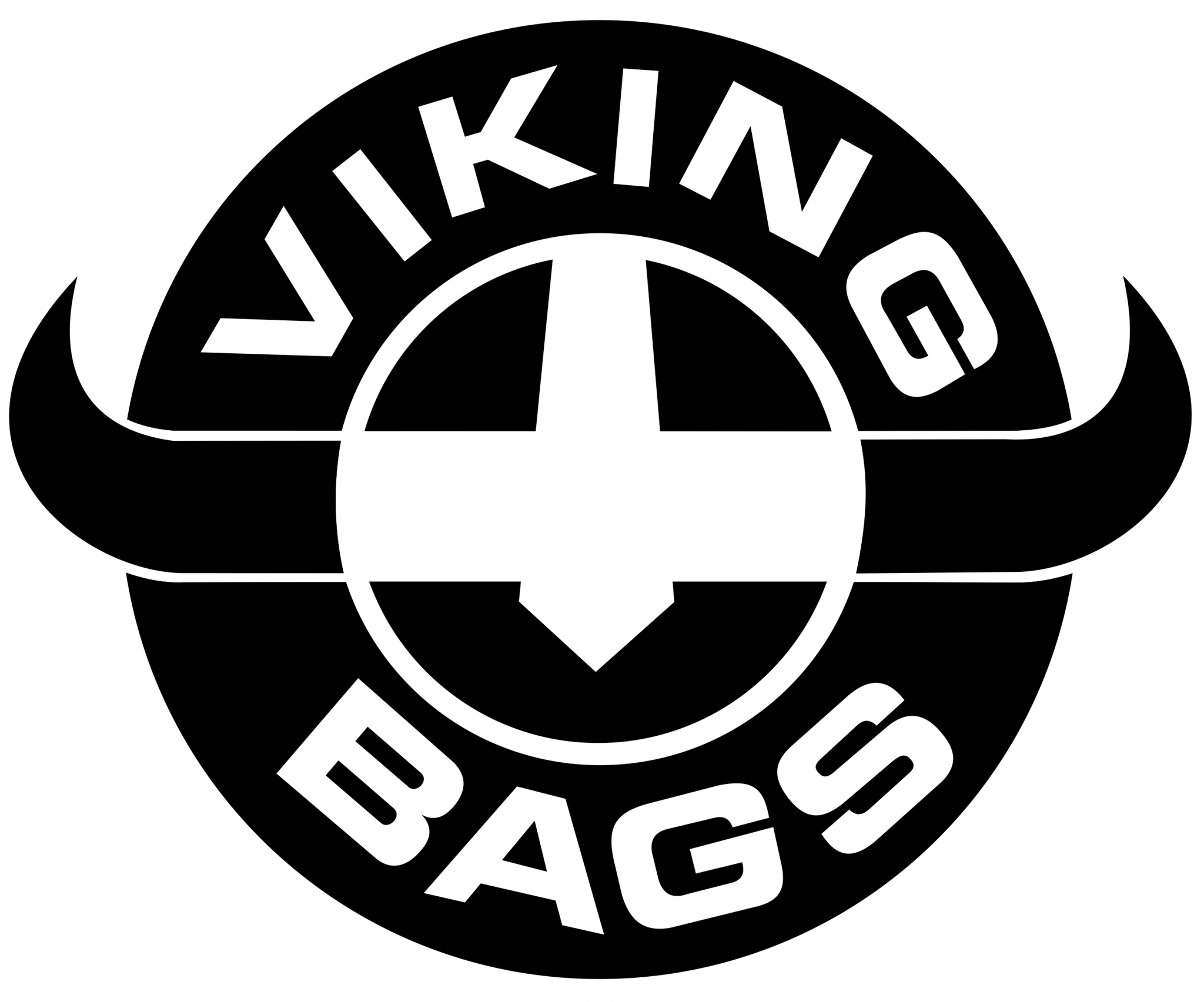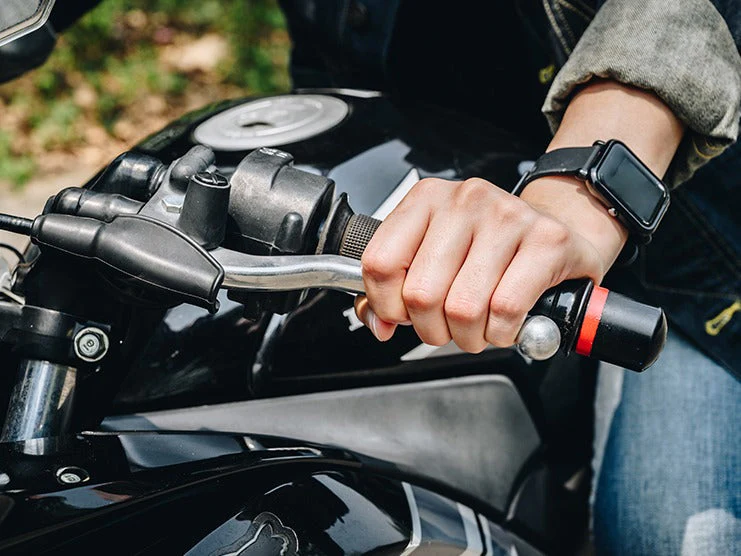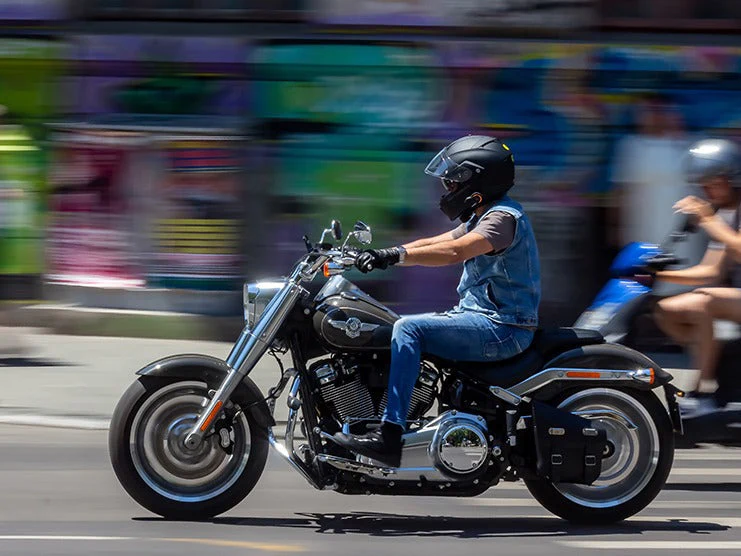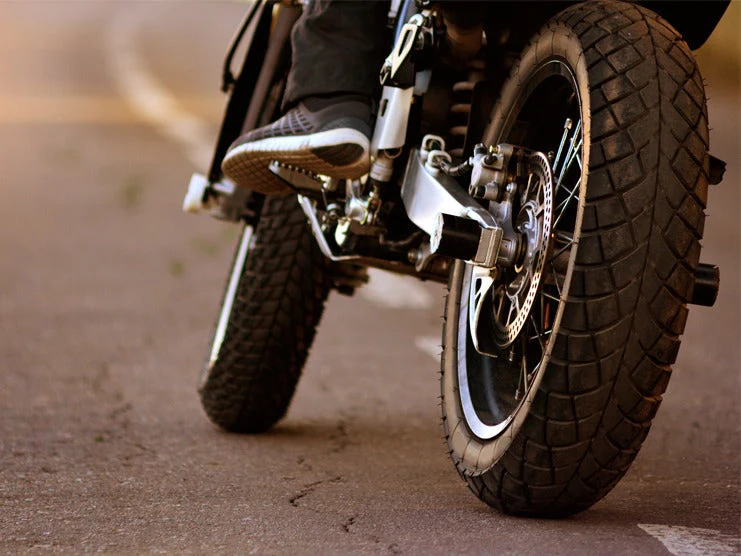A clutch helps you safely shift gears and is used repeatedly when riding a motorcycle. A hard or stiff clutch can be difficult to pull. If it is too stiff and requires more effort to pull, it may need to be adjusted.
This article will discuss the reasons why a motorcycle clutch is so hard to pull.
Table of Content

1. Reasons Why a Motorcycle Clutch is So Hard to Pull
1.1 Dirty or Worn Clutch Cable
The clutch cable runs through the clutch lever to the clutch actuator. Dust, dirt, and moisture can become trapped inside the cable housing over time and clog the clutch cable.
The clutch cable cannot smoothly move back and forth if the inside of the cable housing becomes too filthy. To overcome internal friction and allow the actuator to move to the other end, you will need to pull the clutch lever harder.
The friction in the casing might cause the clutch cable to tear over time. Moreover, this will increase friction, making it more difficult to pull the clutch lever.
Examine the ends of the cable to see if they are damaged. If the cable is even slightly frayed, replace it. A clutch cable only requires a thorough cleaning if it is still in good condition.
At the top of the clutch cable, attach a lubrication tool where it enters the housing. To fit the tool, you might need to loosen the clutch cable and remove it from the clutch lever. Lastly, add the appropriate amount of lubricant into the lube tool.
1.2 Improper Adjustment of the Clutch Lever
It is possible to adjust the clutch levers if you find your motorbike’s original settings make clutch operation difficult. If the clutch lever currently is too hard to grab due to its position, you can set the clutch lever to better suit your riding position.
1.3 Incorrectly Installed Clutch Cable
The clutch cable being connected incorrectly between the clutch lever and clutch plates can cause the clutch to be stiff.
Make sure the wire is connected properly when installing the clutch cable. Make sure to look for any damage to the wire that could impede operation.
An improperly connected wire may result in the clutch lever being difficult to pull and could make riding dangerous. You do not want a cable that seems secure and gets undone while you are riding your motorcycle.
1.4 Clutch Cable Needs Lubrication
The clutch cable changes gears by moving the clutch plates and springs when you pull the clutch. Make sure that the clutch cable is properly lubricated. Old lubricant can build up on the cable or the clutch plates if the oil has not been applied for a while.
If you remove the old oil from the clutch cable and re-lubricate it, but the clutch is still difficult to pull, you may need to inspect it more closely.
You may have to replace the clutch cable if excessive wear and tear have resulted in the cable becoming frayed.
1.5 Clutch Cable is Stuck
There may be a snag in your clutch cable on the way to the clutch housing. The clutch lever will be difficult to pull if the clutch cable is snagged or pinched in any way. If there is resistance when trying to pull the cable lever in a direction, it might be caught on something.
If the clutch cable is stuck after performing maintenance on your motorcycle, you may not have reinstalled the clutch cable correctly.
To fix this, examine the entire length of the clutch cable from the clutch lever to the actuator. Make sure it is straight and that there are no bends or curves. When pulling the clutch lever, make sure the wire is also not tangled or stuck on anything. Otherwise, remove the clutch cable from the clutch lever to straighten it before reconnecting it.
1.6 Clutch Actuator Needs Replacement
Common causes of a stiff clutch are issues with the clutch cable or the end of the clutch lever. But in some circumstances, you may want to check the cable's opposite end. The actuator arm rests on top of the clutch cover and transfers movement from the clutch lever and clutch cable to the clutch assembly. This causes the clutch plates to disengage by releasing tension in the clutch springs.
A broken, corroded, or bent actuator arm or pushrod will make it difficult to pull the clutch lever.
To fix this, inspect the actuator arm for any signs of damage. If there is significant damage, take the motorcycle to a repair shop to replace the actuator.
Most motorcycle actuator levers are attached to a worm drive. If the worm drive becomes corroded or dirty, it may result in a stiff clutch. To fix this problem, you’ll have to remove and clean the worm drive properly with a wire brush and lubricate it.
1.7 Stiff Clutch Springs
Most motorcycles have four to six sets of clutch springs. When you pull the clutch lever, the actuator and pushrod press on the pressure plate which causes the clutch springs to compress. This disengages the drive from the engine to the transmission and releases the clutch friction plates.
When the clutch lever is not pulled, the clutch springs must exert enough tension to ensure friction between the friction discs to transmit enough engine power to the gearbox. It will be challenging to draw in the clutch lever if these springs are overly firm.
If the motorcycle has a powerful engine, it will require stiffer clutch springs. Older race motorcycles often have harder clutches due to the cables having stiffer springs.
To fix this, you can install weaker clutch springs. Make sure that the springs can fit your specific motorcycle. Also, make sure the new springs are not too soft to ensure the clutch discs will properly engage and slip.
1.8 Damaged Clutch Plates
Clutch plates are strong, durable, and the primary component of the clutch system. Damaged clutch plates can cause mechanical problems. Sadly, most damages to clutch plates cannot be repaired and will need to be replaced. Although this problem is not so common, it still can occur, get the issue fixed as soon as you find it.
1.9 Sticky Residue in the System
Any internal damage like sticking and binding in the system can result in a hard clutch. If there is damage or build-up inside the motorcycle, such as sticky residue, it could sever the connection to the clutch lever.
1.10 Faulty Interior Clutch Mechanics
If you cannot find the reason why the clutch is not working, it’s best to take your motorcycle to a repair shop to have it checked by an expert. In some cases, only professionals can find out what is going on. Your motorcycle might have a faulty transmission rather than a broken clutch. When in doubt, take your bike to a repair shop to have all the interior clutch mechanics checked.
1.11 Clutch Lever Pivot Point is Too Dirty or Tight
The clutch lever will be harder to move if the pivot point of the clutch lever is corroded, dirty, or too tight. This could be a result of leaving your bike outside in the rain or off-roading.
Clean the pivot point with soap and water, then lubricate it with WD-40. Wipe away the excess lubricant from the pivot to prevent the accumulation of dirt.
1.12 Low Transmission Oil Level
If you check and refill your motorcycle’s engine oil regularly, the transmission should also have enough oil due to using the same oil sump. However, certain motorcycles, like Harley Davidson models, have a separate oil sump. In this case, you need to check the transmission oil regularly. The clutch may run dry if the transmission’s oil level is too low and may cause mechanical problems.
2. How to Make Your Clutch Easier to Pull?
There are two ways you can make it easier to pull the clutch:
2.1 EZ-Pull
The EZ-Pull system is the less expensive option and can be attached to the clutch lever and cable. It uses leverage to create tension in the cable. This system can be adjusted and is easy to install.
2.2 Hydraulic Clutch
The hydraulic clutch is a more expensive way to make pulling the clutch easier. Many large touring motorbikes have pre-installed hydraulic clutches, but it is possible to install separate ones if your bike doesn’t include them.
These clutches require fluid to help move the clutch actuator and the clutch lever auto-adjusts by itself, eliminating the need for an adjustable cable.
3. Last Words
A clutch is arguably the most crucial motorcycle part since it connects the engine and transmission. However, it can become stiff due to various reasons. There are several factors that can contribute to a hard clutch, including a dirty or worn clutch cable, an improperly adjusted clutch lever, an incorrectly installed clutch cable, a faulty clutch actuator, damaged clutch plates, faulty interior clutch mechanics, a dirty or tight clutch pivot point, and low transmission oil. If you would like to improve the motorcycle's look and storage capacity then you can add new Saddlebags, Sissy Bar Bags, Tank Bags, fairings, handlebars, seats, crash bars, luggage racks, and sissy bars.













Leave a comment
All comments are moderated before being published.
This site is protected by hCaptcha and the hCaptcha Privacy Policy and Terms of Service apply.